 There are more than 100,000 convenience stores in China, with combined annual revenue of 190 billion yuan ($29.7 billion). First and second-tier cities are still popular locations for new store openings, and regional players have taken the lead in the small-format retail sector, but no single operator has yet established a national presence (excluding stores linked to gas stations).
There are more than 100,000 convenience stores in China, with combined annual revenue of 190 billion yuan ($29.7 billion). First and second-tier cities are still popular locations for new store openings, and regional players have taken the lead in the small-format retail sector, but no single operator has yet established a national presence (excluding stores linked to gas stations).
Despite the sector’s rapid expansion, convenience stores are facing headwinds, largely in the rising cost of rent, labor and utility bills; and new momentum from internet giants has intensified competition. More than half of the stores offer mobile payment options via Tencent Holdings Ltd.’s WeChat app, slightly higher than the number offering Alibaba Group Holding Ltd.’s Alipay. Companies have poured investment into new technology, with a focus on self-pay stores and updating their logistics. So far, 36% of stores have adopted online operations. Those companies said online sales contributed 10% of their total revenue. While roughly 40% of the companies have set up a membership system to offer promotional deals, the membership business model is still in its infancy in the Chinese sector.
Mark your calendars for March 2020 when NACS Convenience Summit Asia heads to Bangkok, Thailand.
It’s these fascinating characteristics that made China—and specifically Shanghai—the ideal location for the 2019 Convenience Summit Asia.
Shanghai is one of the four municipalities under the direct administration of the government of the People’s Republic of China. It’s the largest city in China by population, and the second most populous city in the world, with a population of 24.18 million as of 2017. The city’s population is 89.8% urban and 10.2% rural, and more than 39% of Shanghai’s residents are long-term migrants, a number that has tripled over the past decade. These migrants are encouraged to move to the city from rural areas to stave off workforce shortages and an aging population. Shanghai’s natural population growth has been negative since 1993 due to low fertility rates and China’s famous “one child per household” policy.
The city is a global financial center and transport hub, with the world’s busiest container port.
In the 1990s, economic reforms resulted in an intense redevelopment of Shanghai, aiding the return of finance and foreign investment to the city. It has since re-emerged as a hub for international trade and finance and has been described as the “showpiece” of the booming economy of mainland China.
Aside from Asia-specific content exploring the convenience channel in China, attendees to the Convenience Summit Asia this year also experienced retailing firsthand via store tours around the metropolis of Shanghai.

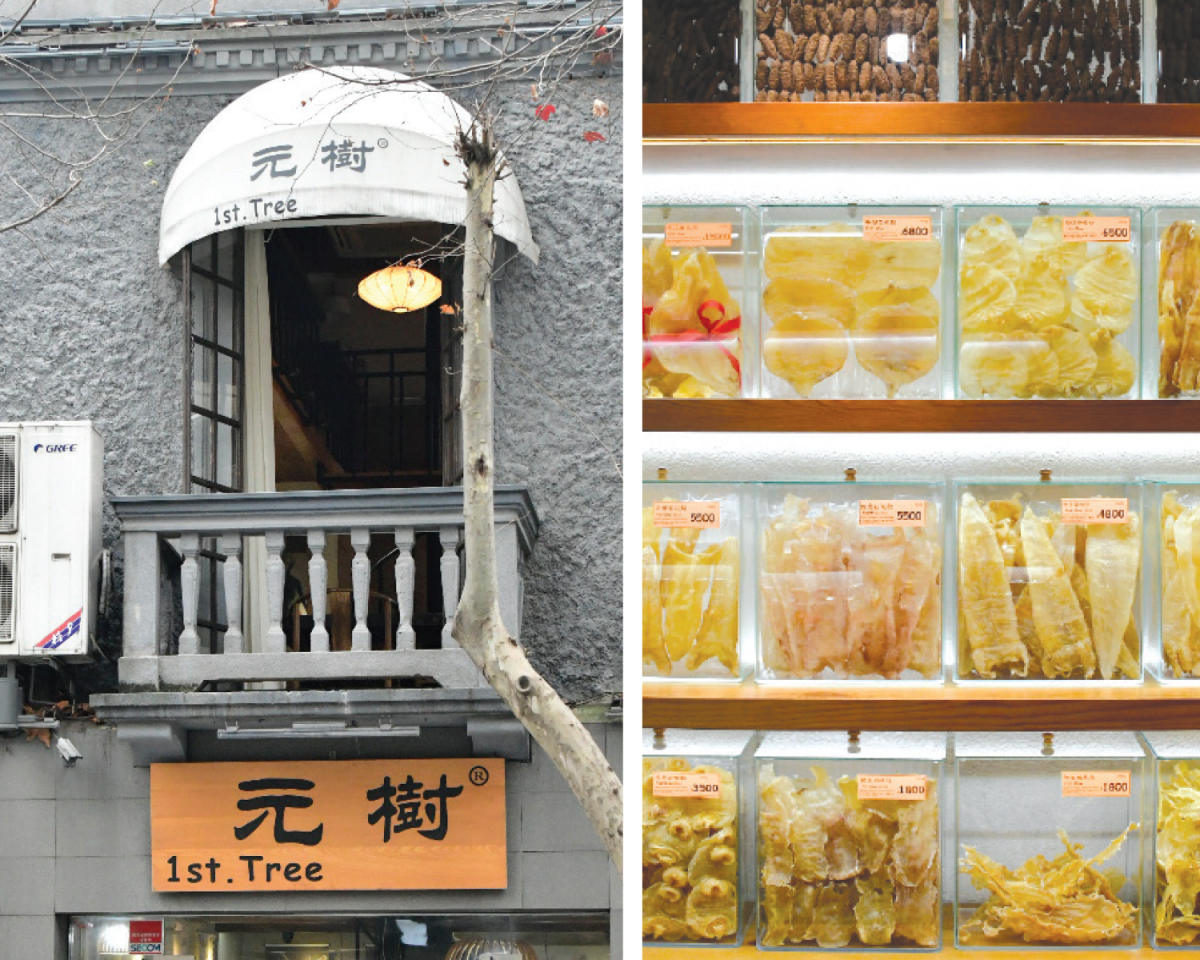 1st Tree
1st Tree
From bird nest soups to processed scorpions and dried seahorses, 1st Tree offers ancient Chinese traditional foods that were once served to the Chinese royal family to enhance overall well-being and longevity. The shop is well-merchandised, with a large variety of exotic ingredients and herbs. Customers can choose ready-made soups prepared by the professional chef at the restaurant, who matches ingredients to achieve different health goals; knowledgeable staff share how to prepare these ingredients and explain the benefits of the herbs. 1st Tree also carries a menu that serves southern Chinese cuisine and dessert at reasonable prices. The restaurant has a cozy dining area on the second floor and a bar on the third floor.
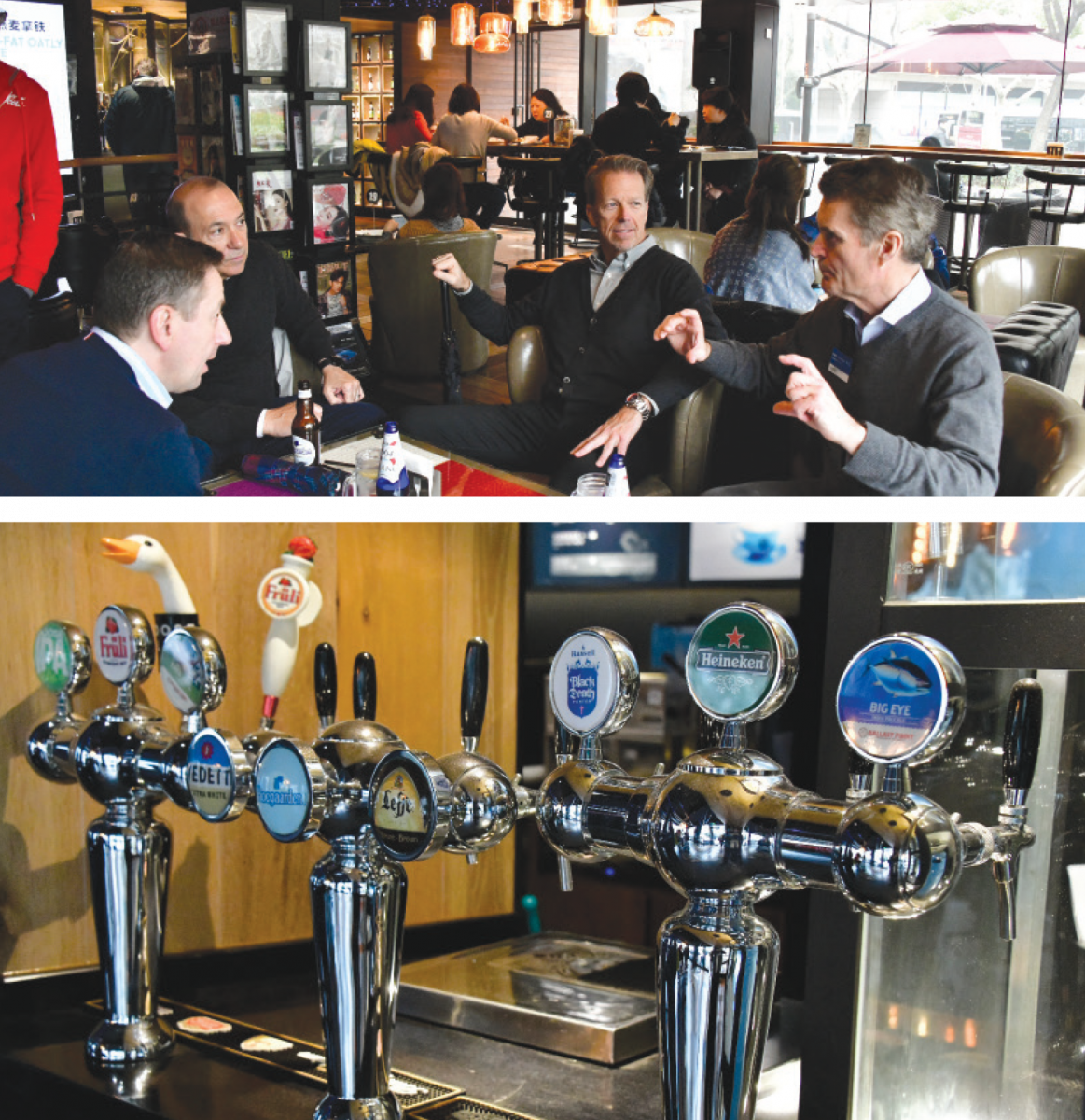 Blue Tree Café
Blue Tree Café
Customers visit Blue Tree Café for the healthy options, but the Blue Tree experience keeps them coming back. Menu items include cold-pressed juices, açaí bowls, kale salads, vegan soups and gluten-free pastries. Aimed at not only health-conscious but also environmentally conscious customers, Blue Tree sources produce locally and organically and uses glass bottles to avoid plastic waste. In addition, juices, teas, nut milks and raw beverages are made in-house. Blue Tree emphasizes educating both customers and employees on health-awareness and well-being, and its website offers educational information on juice cleansing. There are different opportunities for franchising: a single-unit store owner or multi-unit store owner. For franchisees, Blue Tree offers marketing support, multi-phase training opportunities and management assistance. The brand was co-founded by brothers Kevin and Steve Aoki; the latter is a famous electro-house musician, record producer and music executive.
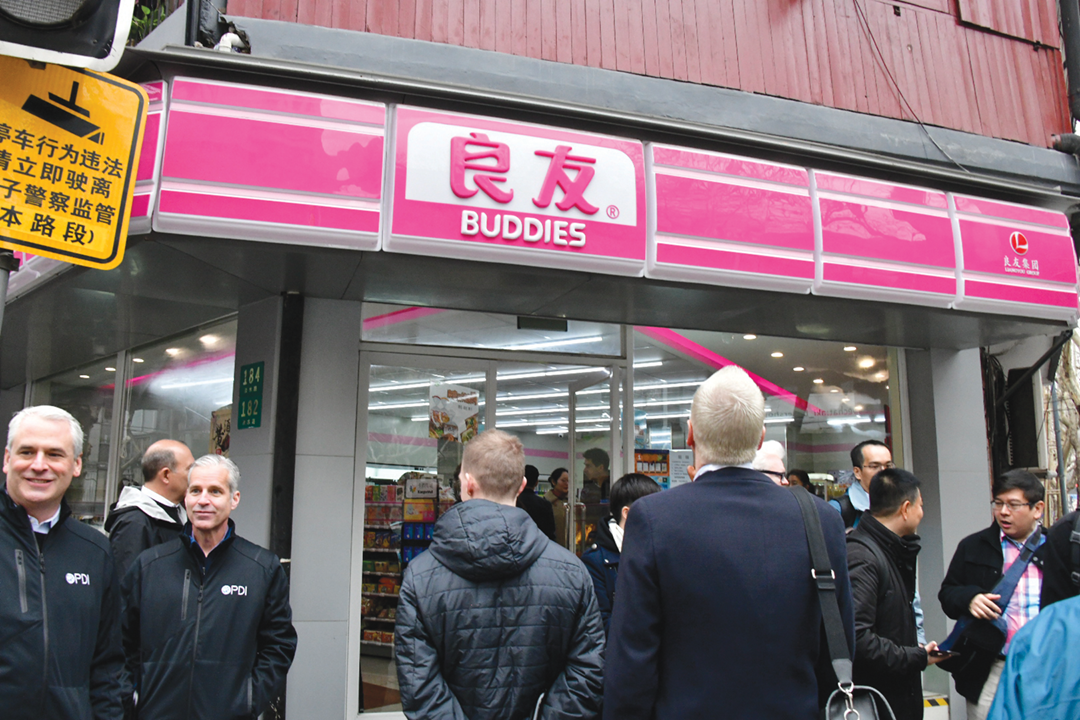 Buddies (Shanghai Buddies CVS Co., Ltd.)
Buddies (Shanghai Buddies CVS Co., Ltd.)
Established in September 1998, Buddies retails dry and canned goods, edible oils, flour and rice products, as well as everyday health-care, food and drink items. As one of the leading regional convenience store chain operators and franchisers in Shanghai, the chain has nearly 520 stores and 270 franchises. The stores feature online marketing and shopping, delivery services, mobile payment, electronic shelves and ready-to-eat, store-prepared foods—making it a convenient stop for busy shoppers. Buddies has been awarded the “Most Influential Franchise Brand” for eight consecutive years and has been rated as a “Top 100 Chinese Chain Enterprises” for six consecutive years. Its main customers include tourists, white-collar workers and neighbors.
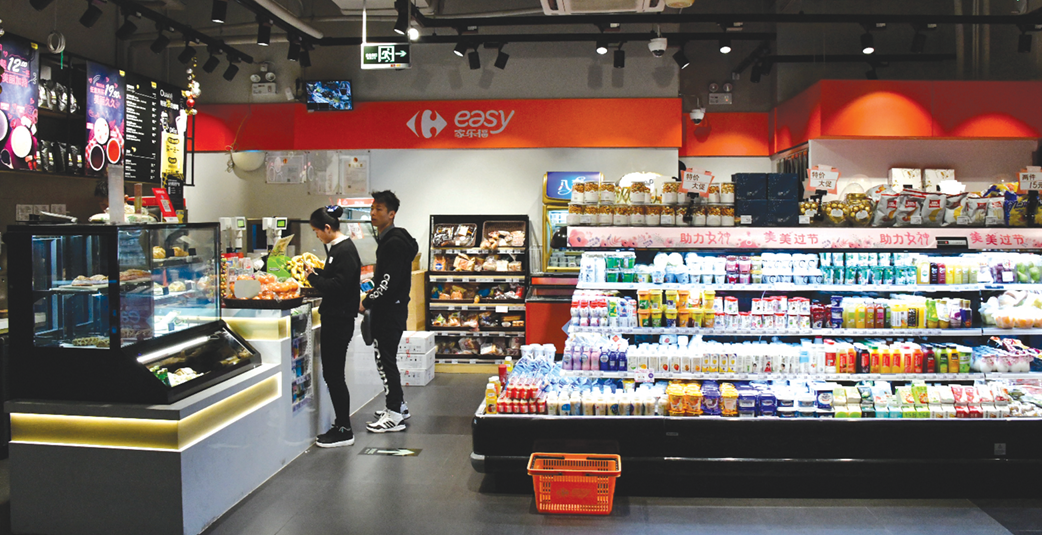 Carrefour Easy
Carrefour Easy
Carrefour, a French multinational retailer, is known for establishing the first European hypermarket—a large supermarket and department store under the same roof. It opened its first hypermarket in China in 1995. As part of its multi-format, omni-channel growth strategy in China, the group opened its first convenience store in 2015, adopting the Easy store banner the following year. In 2017, Carrefour operated 39 convenience stores in the country. With its unique footprint, Carrefour Easy is neither a convenience store nor a supermarket. Its existing sourcing and supply-chain capabilities for fresh products ensure its c-stores provide availability, quality and good prices in three categories: immediate consumption, take-away and groceries. The retailer has heavily leveraged its distinctive orange color to stand out from neighboring shops. The stores also provide services, such as pick-up, onsite catering, mobile payment (Alipay, Apple Pay, Samsung Pay and WechatPay), Wi-Fi, lottery tickets, mobile top-ups and a photo printing facility. Each store showcases nearly 8,000 SKUs—three-quarters are in food categories.
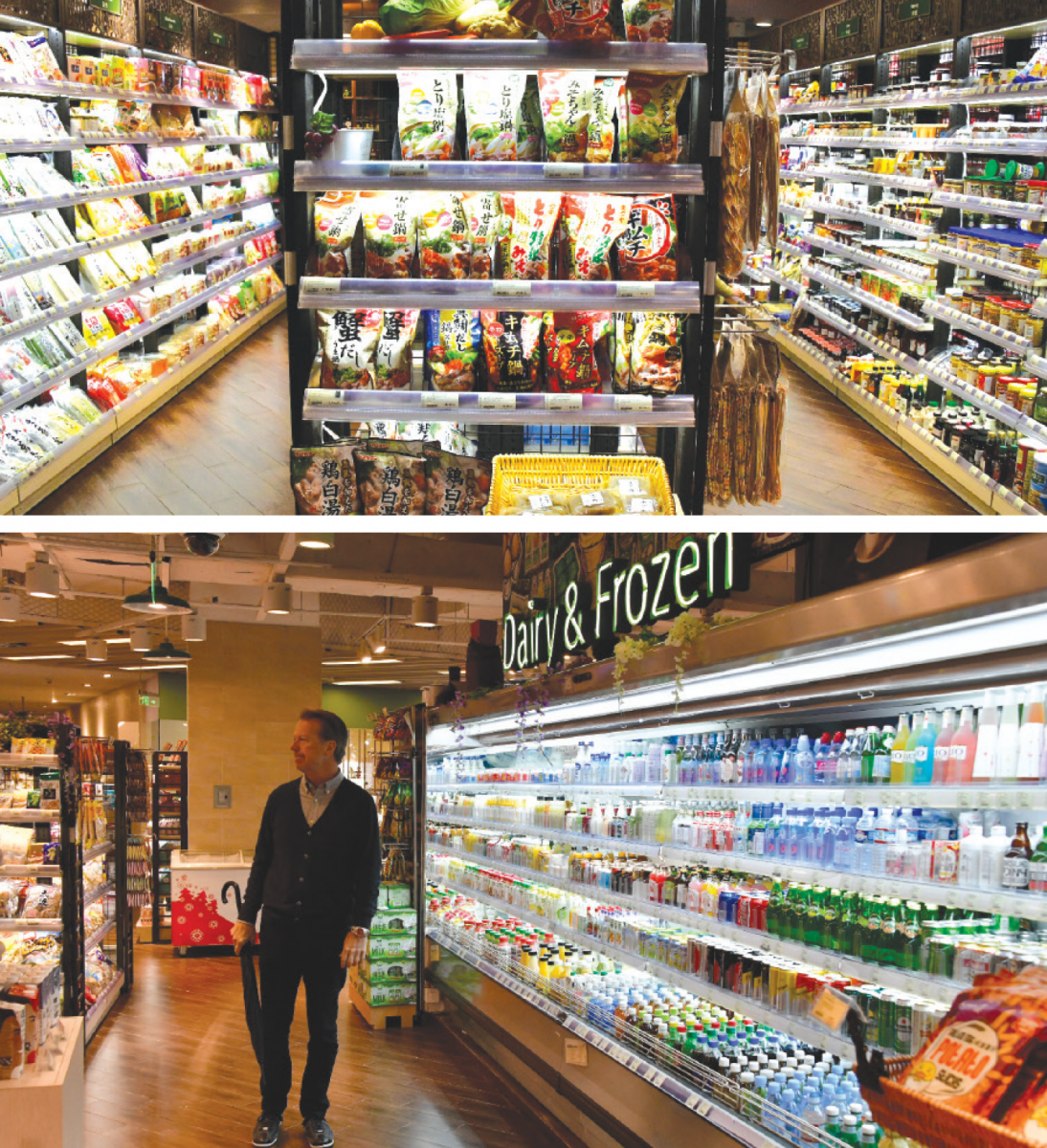 City’super
City’super
City Super Group established its first store in 1996 with the mission of creating Hong Kong’s first “Mega Lifestyle Specialty Store.” The group now operates under three store brands: City’super, LOG-ON and cookedDeli. In alignment with its concept of “providing needs and stimulating wants,” City’super delivers a diverse range of merchandise categories including food and beverages, and also alcohol and lifestyle products. Aimed at the top 5% of income earners in Shanghai, City’super is looking to create its own niche, specializing in upscale imported grocery products, selling more than 150 types of beer and juices, 100 types of Japanese sake, shochu and liquor, and around 70 types of frozen food products from Japan. Seasonal displays are put together around the entrance and around the store, and several times a year, “local fairs” are held for different Japanese regions.
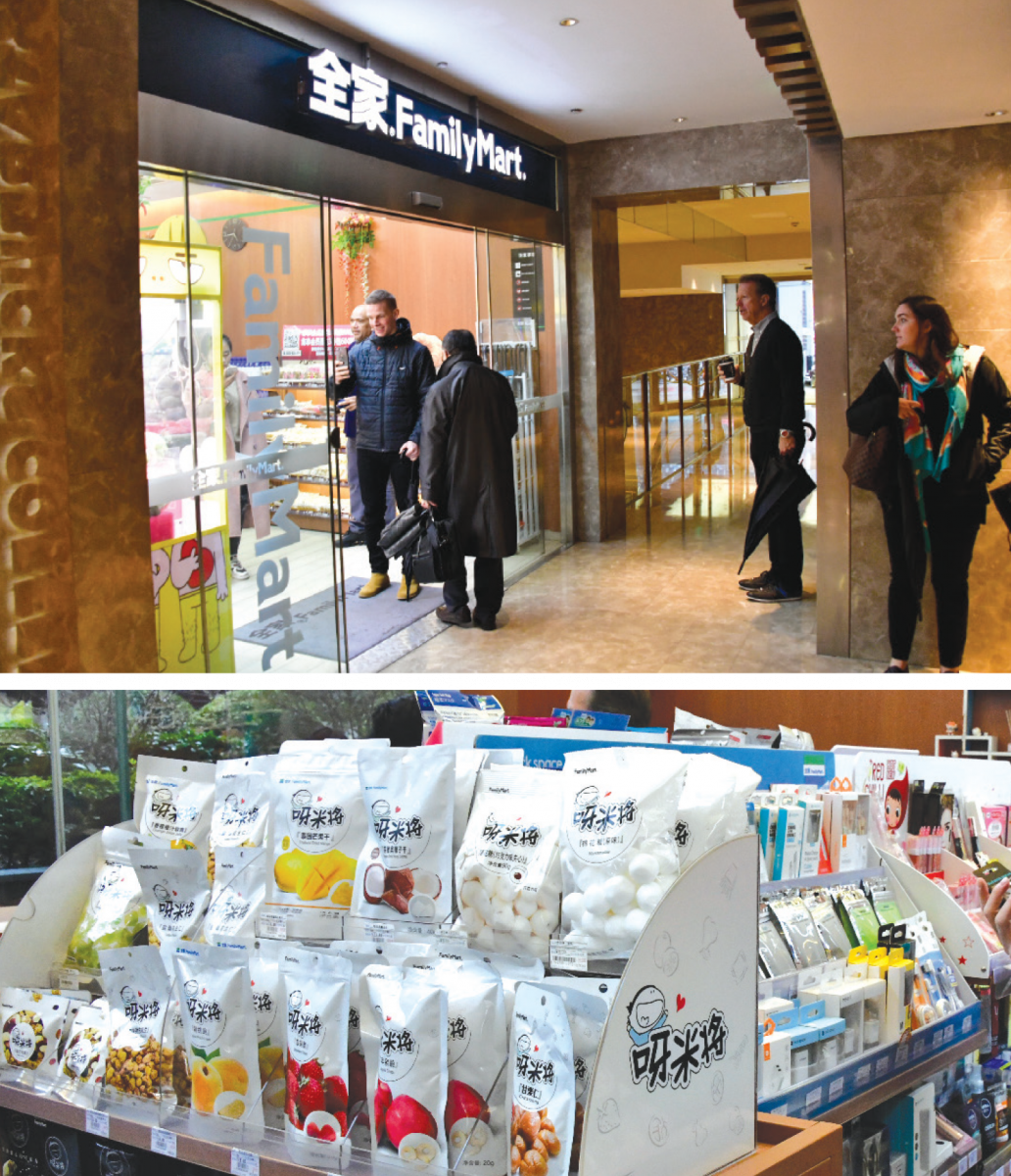 FamilyMart
FamilyMart
At the end of 2018, Japan’s second largest convenience store operator, FamilyMart, had 2,556 franchised stores in China. In addition to the Japan domestic market, the company also operates in China, Taiwan, Thailand, Korea, the United States and Philippines markets, totaling 24,071 stores worldwide. In January 2018, FamilyMart partnered with JD.com to allow customers to order food for delivery from any FamilyMart location in Beijing, Shanghai, Shenzhen and Chengdu within 30 minutes, 24 hours a day. The FamilyMart store at the K11 Art Mall trades from around 3,200 square feet, with around one-fifth of that space dedicated to customer seating. Its third-generation store design and product offers match the upmarket décor and product range in line with its premium office environment.
Fuji Tea
Founded in Taiwan in 2017, the Fuji Tea chain has 14 tea shops, largely in Shanghai. Fuji Tea aims to bring high-quality, Taiwanese tea to modern, young consumers, making tradition and the fine tea culture more accessible. Sourcing its alpine oolong tea from Cingjing Farm, Taiwan, the tea shop offers a wide variety of popular teas such as bubble milk tea, seasonal fruit teas and teas topped with foamed cream cheese, as well as European-style pastries. The shop features an open working environment where customers can watch the brewing process. Its eye-catching products, clean and modern environments and seating spaces invite young customers to dine in or order to-go.
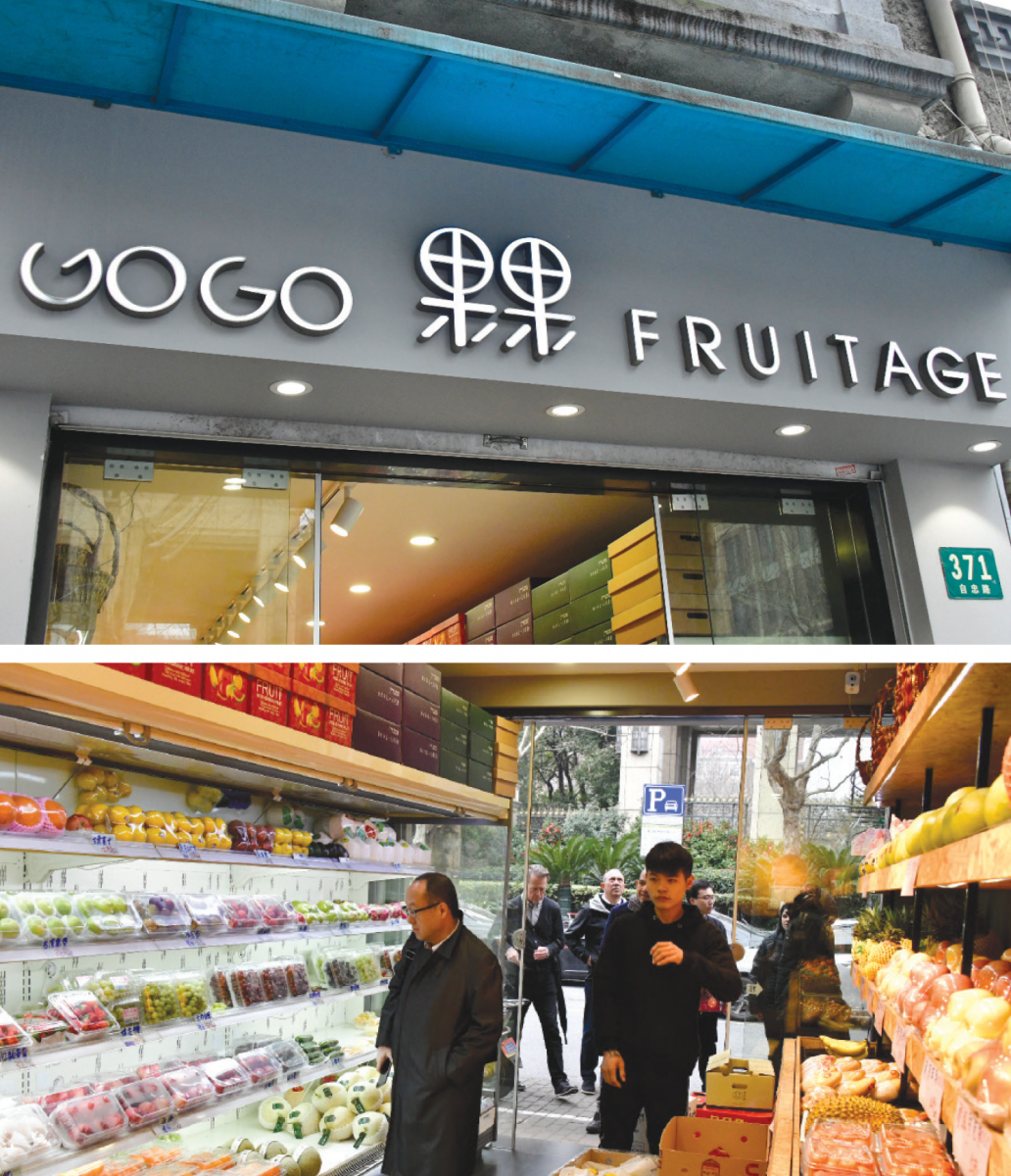 Gogo Fruitage
Gogo Fruitage
Opened in January 2017, Gogo Fruitage is a high-end fruit store that sells a large variety of fresh and mostly imported fruit. While slightly more expensive than other fruit stores, the quality is high. Gogo Fruitage serves freshly squeezed juice, including watermelon, pomegranate, pear, mango and more. The store staff offer free fruit cutting and packages. Customers also can purchase boxed, pre-cut fruit for easy consumption.
Lawson’s
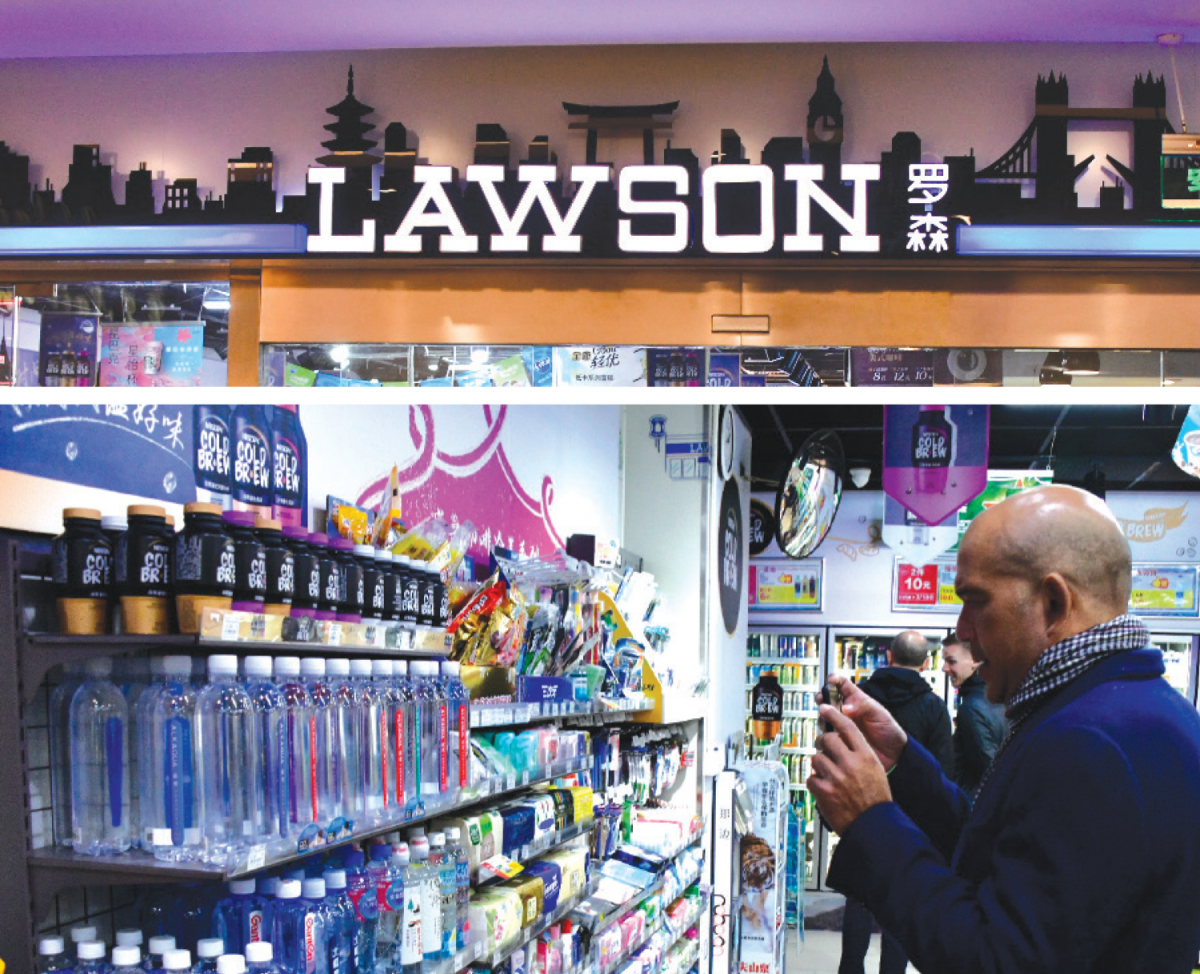 Lawson’s first opened in 1939, launched by a dairy farmer named James “J.J.” Lawson in Cuyahoga Falls, Ohio. Through a series of mergers and acquisitions, Lawson’s gained a presence in Japan. The first stores opened in 1975, and in 1979, the official name was changed to Lawson Japan Inc. The brand currently has more than 1,200 locations in China, with the majority located in Shanghai (more than 800). Lawson’s opened its first store in China in 1996—the first 24-hour convenience store in Shanghai. It also boasts of many other firsts in China: first c-store to accept payments for utilities, first to provide film development, first to sell tickets for entertainment activities, first to provide photocopy service, first to provide ATMs and the first c-store to provide automatic medicine distribution machines.
Lawson’s first opened in 1939, launched by a dairy farmer named James “J.J.” Lawson in Cuyahoga Falls, Ohio. Through a series of mergers and acquisitions, Lawson’s gained a presence in Japan. The first stores opened in 1975, and in 1979, the official name was changed to Lawson Japan Inc. The brand currently has more than 1,200 locations in China, with the majority located in Shanghai (more than 800). Lawson’s opened its first store in China in 1996—the first 24-hour convenience store in Shanghai. It also boasts of many other firsts in China: first c-store to accept payments for utilities, first to provide film development, first to sell tickets for entertainment activities, first to provide photocopy service, first to provide ATMs and the first c-store to provide automatic medicine distribution machines.
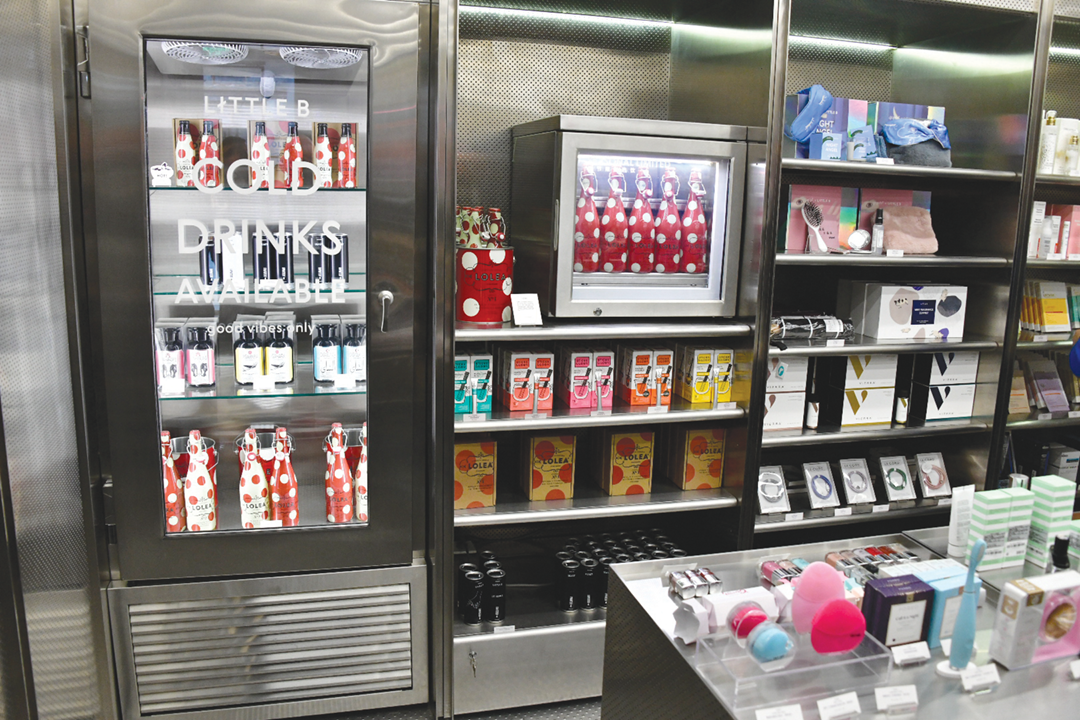 Little B Convenience Store
Little B Convenience Store
Little B is a high-end convenience store located in an alleyway in Shanghai’s historic Xintiandi district. It was designed by Chinese studio, Neri&Hu, which mixed curved white-glazed tiles with stainless steel to create more of a science fiction movie set than a conventional c-store. Neri&Hu took inspiration from the aesthetic of pop-up shops to give the space a “spontaneous” feel by leaving the entrance relatively empty as an extension of the external public streetscape. Unlike typical c-stores, each item in Little B is sourced from various high-end brands that have been curated to suit the increasingly discerning taste of Chinese consumers. Little B uses stainless steel—brushed and polished, perforated and bump textured—for layering various finishes, as well as vibrant packaging of products, colors and shapes from featured artwork.
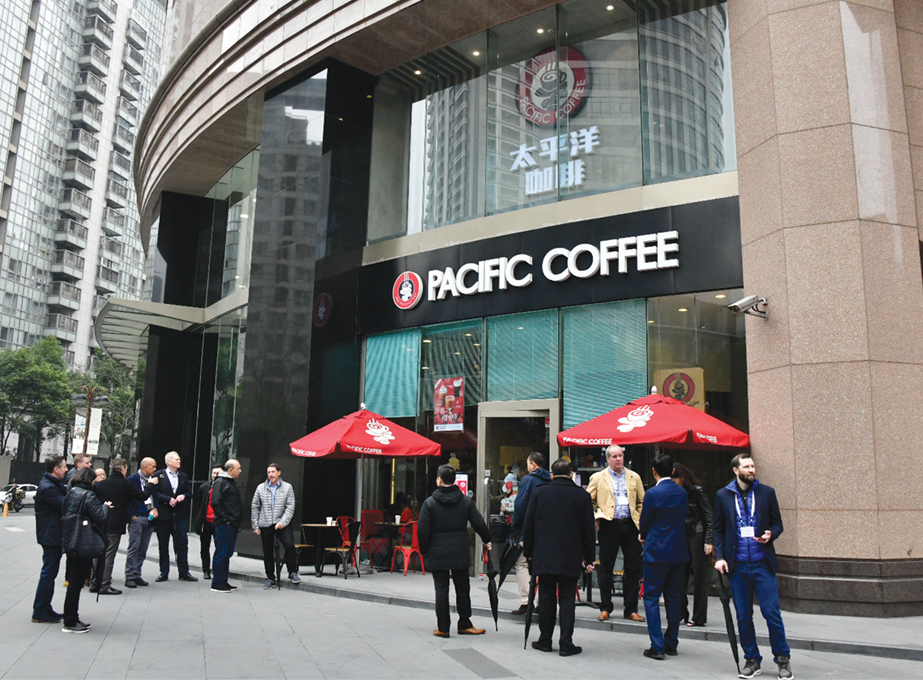 Pacific Coffee
Pacific Coffee
Apart from its stores, European-style coffee house Pacific Coffee sells its own brand of coffee beans and Jura coffee machines and provides catering and delivery services. The stores offer comfortable surroundings to hang out, along with fresh foods and beverages daily, internet connectivity and loyalty benefits. The brand focuses on on-the-job training for employees of different ranks to help strengthen staff service levels and build their confidence in communicating with guests. The company is committed to giving back to the communities it serves, as well as coffee farmers and the environment through fundraising campaigns and donations to farm and environmental charities.
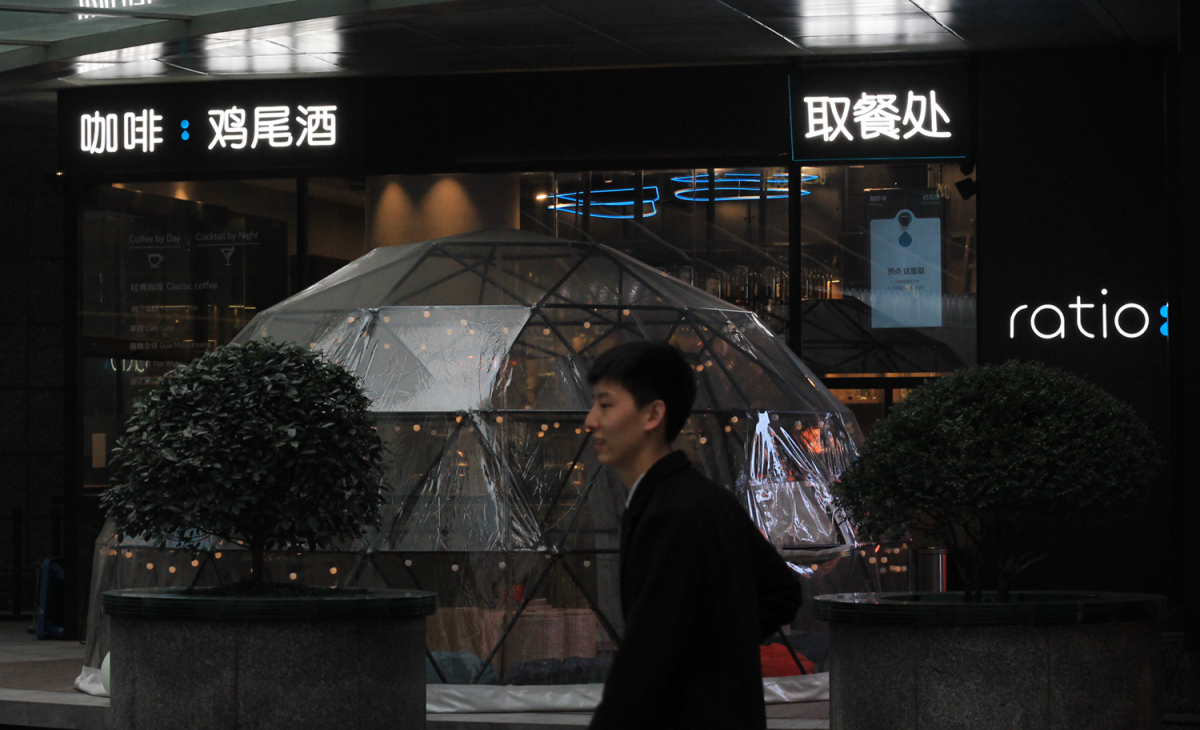 Ratio Café
Ratio Café
Ratio Café is a fully automated coffee shop located only in Shanghai, run by collaborative robots, or “cobots,” designed to work alongside humans to help and, in this case, create a completely customized coffee drink. Customers can order their morning cup exactly the way they want it via mobile phone and have it prepared to perfection by a cobot. The café turns out about 400 drinks.
a day, taking on average two minutes from order to table. The menu consists of more than 50 fixed coffee and cocktail drinks, as well as the option to create your own using preferred flavor profiles. All ordering is done through WeChat. Using artificial intelligence, Ratio stores customers’ orders and learns their preferences in order to make recommendations for future visits.
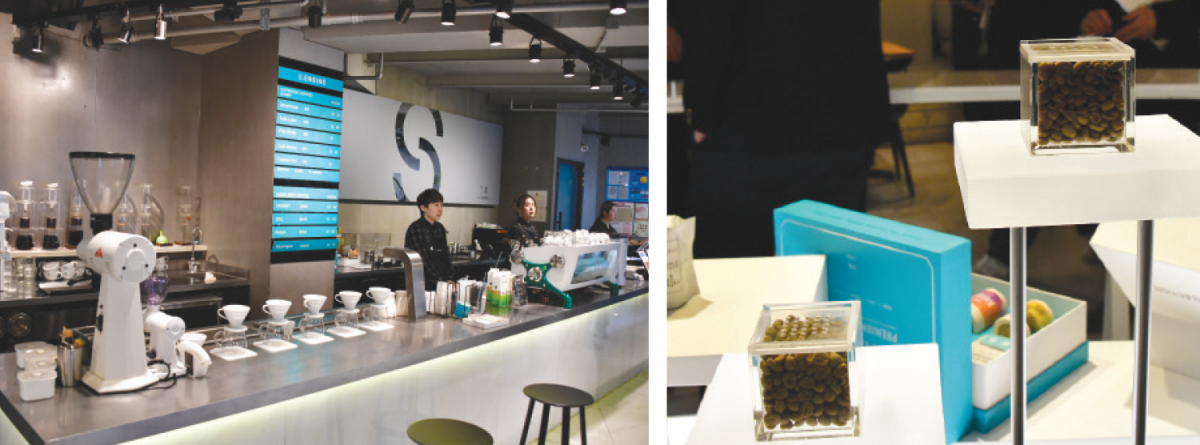 S. Engine Coffee
S. Engine Coffee
S. Engine Coffee is a specialty coffee brand with an ambitious goal of becoming the best in China. The menu consists not only of specialty coffee from around the world but also desserts, matcha lattes and a variety of teas. Similar to the Starbucks aesthetic, the shop itself is described as “modern, clean and spacious” and “ideal for those who need a place to meet or work all day,” as it’s open until midnight on Friday and Saturday. The flagship store in the Jing’an District has the feel of a futuristic hub, with a spiral staircase in the center of the store that leads up to pod-like enclosures, where customers can sit on teardrop-shaped chairs while watching baristas prepare orders below.
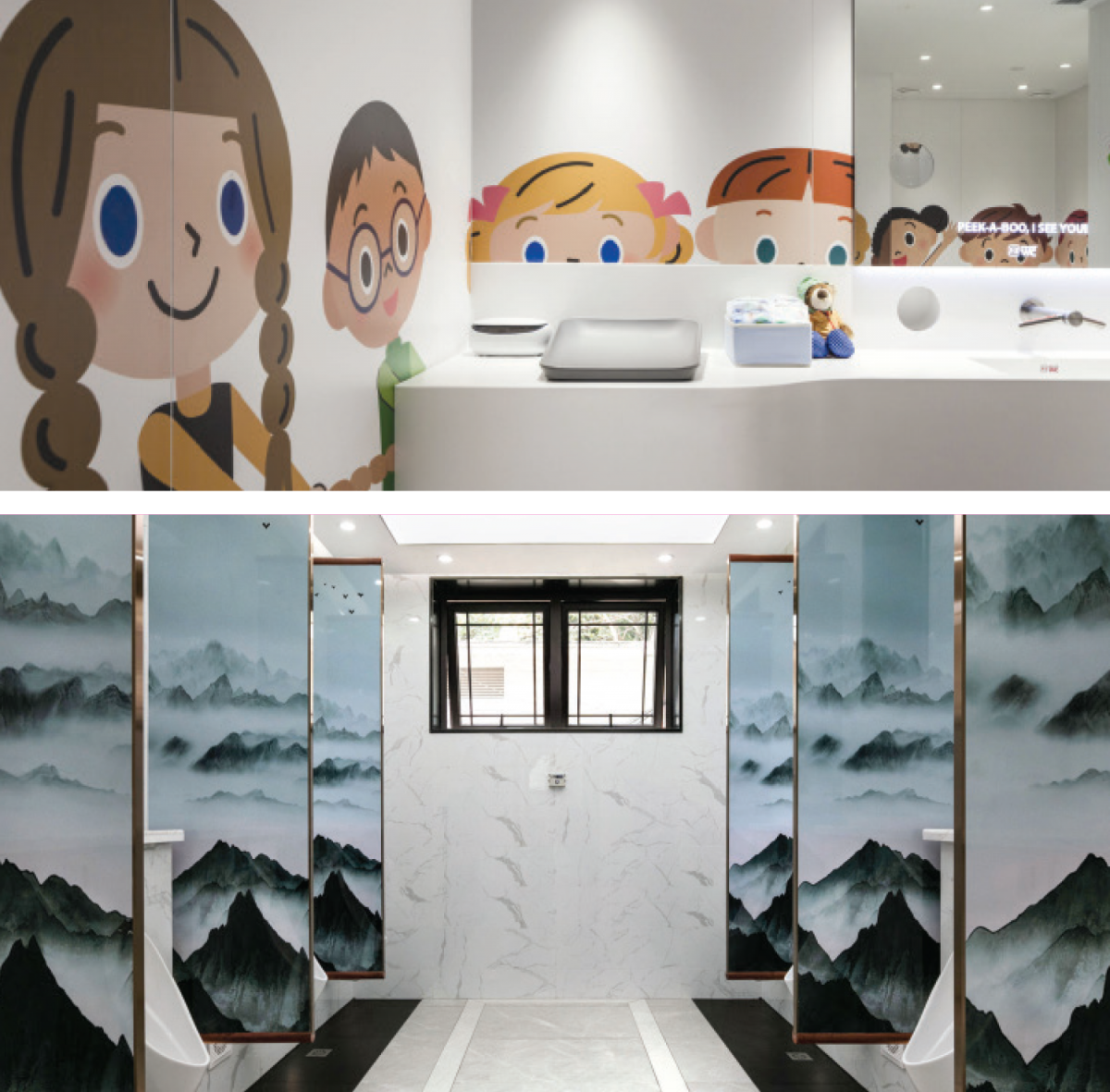 We Care WC
We Care WC
We Care WC designs, constructs and maintains fully serviced public restrooms and operates under the vision: “To make innovative, comfortable and hygienic restrooms the new standard.” The first We Care WC opened in August 2017 in partnership with Sinopec, one of China’s largest state-owned petroleum companies. The company also partners with shopping malls and centers, train stations and airports with the goal of transforming the public restroom experience. All restrooms are uniquely designed—from sleek and modern to quirky and humorous—specifically for the locations in which they are placed. We Care WC is an official sponsor for Wang Jiachao, the first disabled triathlete in China, who will be going to the 2020 Tokyo Paralympics. It also is involved in a project designed to provide a sustainable water supply system for young students at the Lairagwan Pry School.